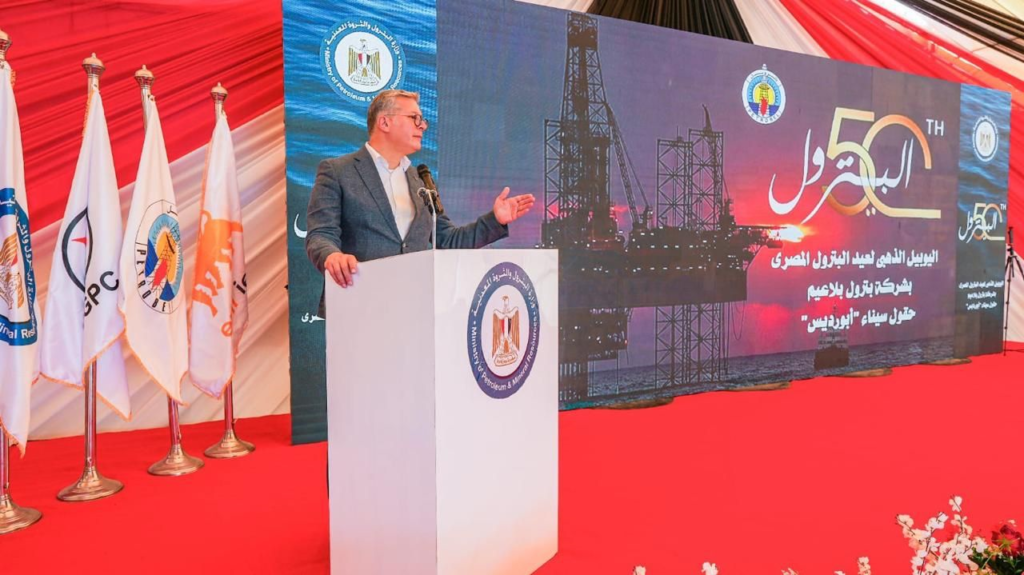Karim Badawi, Minister of Petroleum and Mineral Resources, shed light on a series of major achievements in the sector during a celebration commemorating the Golden Jubilee of National Petroleum Day, which marks the anniversary of the 1975 recovery of Egypt’s Sinai oil fields from Israeli control.
A statement by the ministry noted that Badawi honored 196 employees during the ceremony held at the Abu Rudeis production fields in South Sinai. The minister praised the sector’s workers for their dedication to sustaining production levels and securing energy supplies for the domestic market.
He noted that since the launch of the ministry’s strategy in July 2024, renewed incentives have encouraged new investments in research and Exploration and Production (E&P) activities. This successfully restored investors’ confidence.
Current natural gas production has reached about 4.2 billion cubic feet per day (bcf/d), with plans for continued increases. Crude oil production has also stabilized following previous declines, supported by discoveries in the Western Desert and Gulf of Suez.
The petroleum sector witnessed 75 new oil and gas discoveries and brought 383 new wells into production, adding 1.1 billion cubic feet (bcf) of gas and nearly 200,000 barrels per day (bbl/d) of crude oil. These achievements saved the country approximately $6.7 billion in oil and gas import bills. Furthermore, preparations are underway to drill more than 100 new exploration wells in 2026.
To secure natural gas supplies for the next five years, the ministry implemented a proactive plan focused on upgrading infrastructure, according to Badwi’s statement. This involved improving liquefied natural gas (LNG) import facilities and deploying four regasification ships with a combined capacity of 2.7 bcf/d to ensure sufficient energy for industrial and consumer needs.
The sector also made progress in energy transition and domestic supply: Natural gas was supplied to 813,000 homes across 27 governorates, and approximately 80,000 cars were converted to run on natural gas. The sector expanded the use of renewable energy at work sites instead of diesel. Refineries produced 34 million tons of petroleum products, achieving $3.2 billion in exports. The petrochemicals sector generated 4 million tons annually, including $2.6 billion in exports.
In the Mining Sector, Badawi emphasized updated legislation and the transformation of the mineral resources authority into an economic authority to create a more investment-friendly environment. He noted the progress of the phosphoric acid production complex at Abu Tartour aimed at maximizing the added value of phosphate.




